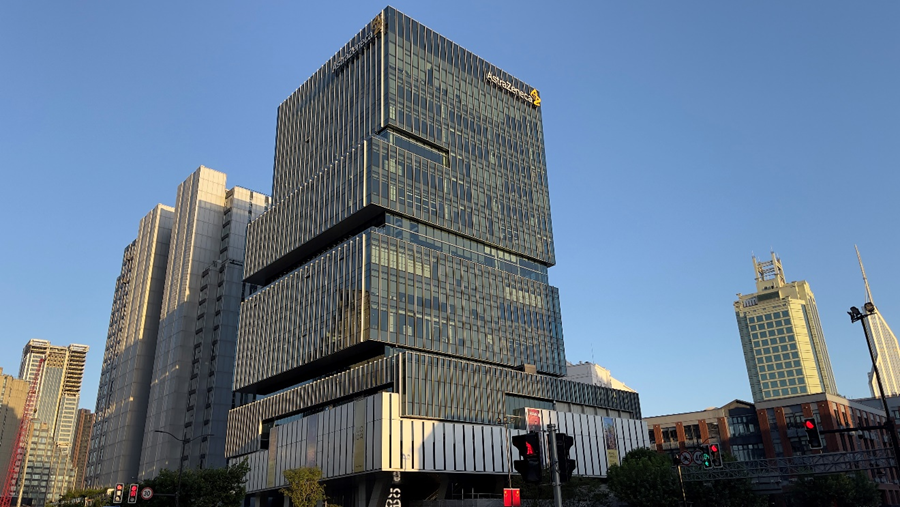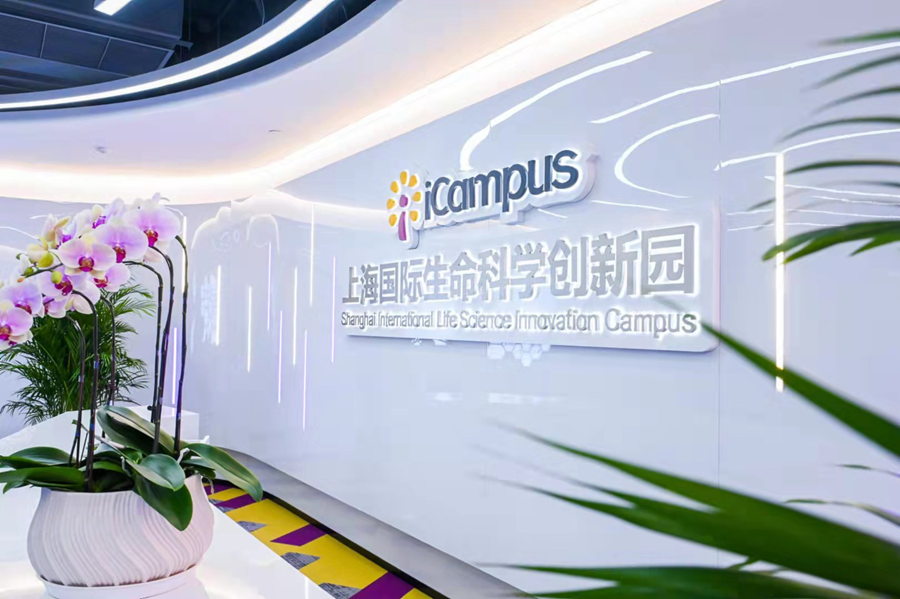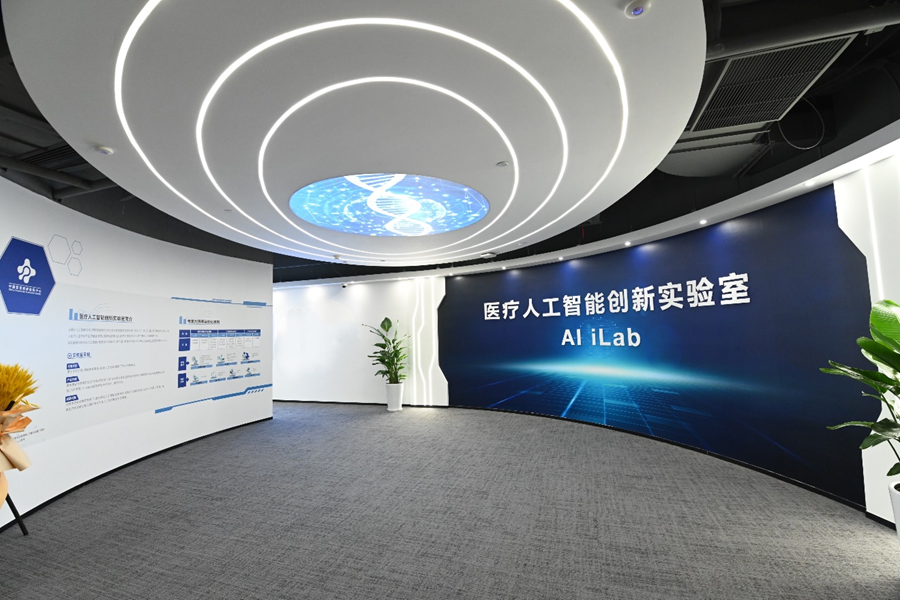Shanghai, industry partners to co-build world-class biopharma industry cluster
 0 Comment(s)
0 Comment(s) Print
Print E-mail China.org.cn, October 11, 2021
E-mail China.org.cn, October 11, 2021
The 2021 International Biopharma Industry Week opened in Shanghai on Oct. 11, bringing together industry gurus, research minds, investors, and government representatives to discuss the latest trends in the biopharmaceutical sector and drive new growth momentum.
The four-day industry gathering, featuring an opening ceremony and 20 forums and conferences, marks the Chinese city's latest efforts to align industry players as it aims to become a world-class industrial cluster for the biopharmaceutical sector.
Last year, Shanghai's biopharmaceutical industry, as one of the city's top three priority industries, was valued at 600 billion yuan ($93 billion) with a gross industrial output of 140 billion yuan.
According to a guideline issued by the Shanghai municipal government in May, the city's three-year action plan for biopharma aims to boost the annual industrial output to 180 billion yuan.
To reach this goal, the city will give preferential policy support to four major sectors: innovative drugs, advanced medical facilities, high-end biopharma equipment and materials, and new forms of outsourcing services. It has also collaborated with industry leaders to promote partnerships that focus on R&D and expand the diversity of the R&D ecosystem.
"In recent years, China has emerged as a research and innovation powerhouse, with Shanghai's innovation ecosystem and vision to become a world-leading biopharmaceutical cluster playing a central role," said AstraZeneca CEO Pascal Soriot. He noted that the company is proud to have been part of this ecosystem and will continue this commitment in the way forward.
AstraZeneca builds an innovation ecosystem
The International Forum of Pharmaceutical R&D Innovation, hosted by biopharma giant AstraZeneca on Oct. 11, was a major event during the industry week.
At the forum, AstraZeneca inaugurated the newly upgraded Global R&D China Center.

According to AstraZeneca, the center's recent renovations involved investment increase, pipeline expansion, hardware upgrades, and headcount growth. It will function as a key engine for the company's global R&D, extending beyond confirmatory clinical trials and commercialization to early development stage.
"It's a center that has a tremendously important role to play in advancing R&D and clinical trials of new medicines both from China and overseas to accelerate their launch, and helping to make much needed innovative medicines available to patients in China and worldwide," Soriot said in his opening remark at the forum.
Also at the forum, the company, in partnership with Shanghai's Jing'an district government, launched the Shanghai International Life Science Innovation Campus (Shanghai iCampus), which will serve as a one-stop innovation incubator that helps both domestic and overseas startup companies with landing and expanding great projects.

Focusing on medical AI and digital therapy, iCampus pools together wisdom and resources from the government, industry, academic and research institutes, as well as investors to deliver AI- and digital-enabled solutions in drug development, disease prevention, diagnosis, treatment, and rehabilitation.
Startups in iCampus will benefit from AstraZeneca's sprawling global innovation network that features ample exchange opportunities with world-leading innovation facilities like the R&D center in Cambridge (UK) and BioVenture Hub in Sweden. They will also be provided with potential commercial collaboration opportunities with AstraZeneca, as well as support in funding, commercialization and professional services.
The forum also witnessed the launch of Medical Healthcare AI Innovation Center, an empowerment platform that will help to accelerate the application of new AI-powered smart healthcare technologies, products, and models in medical institutions.

"Through these facilities, and with the support of our Healthcare Industry Fund set up in collaboration with the China International Capital Corporation, we hope to kickstart further investment here in Shanghai and establish new partnerships that will bring forward many more life-changing advances that help patients live healthier lives," Soriot said.
The forum also included sessions addressing topics on research-oriented hospitals, the Fourth Yangtze River Delta Innovation Competition, precision medicine, and remote intelligent clinical trial innovation. The discussions were aimed at assisting the landing of innovative projects, boosting efficient blending of industry and capital, and accelerating industrialization of local pharmaceutical innovation in Shanghai.
In China, for China and for the world
Since entering the Chinese market in 1993, AstraZeneca has invested more than $1 billion in R&D and introduced nearly 40 innovative medicines in China.
With its China headquarters in Shanghai and regional headquarters in Beijing, Guangzhou, Wuxi, Hangzhou, and Chengdu, the company has established a sprawling network and become the largest multi-national pharmaceutical company in the world's second largest economy.
China is AstraZeneca's second largest market. Last year, the company's overall sales totaled around $5.38 billion.
In the future, AstraZeneca will be committed to building R&D-focused partnerships among governments, industries, institutions, hospitals, and investors to construct a more diverse R&D ecosystem in China, the company said.
"AstraZeneca has had a presence in China for over a quarter of a century. Underpinned by a commitment to being 'in China, for China,' we are making a difference to healthcare within China and advancing innovations to benefit patients around the world," Soriot said.





